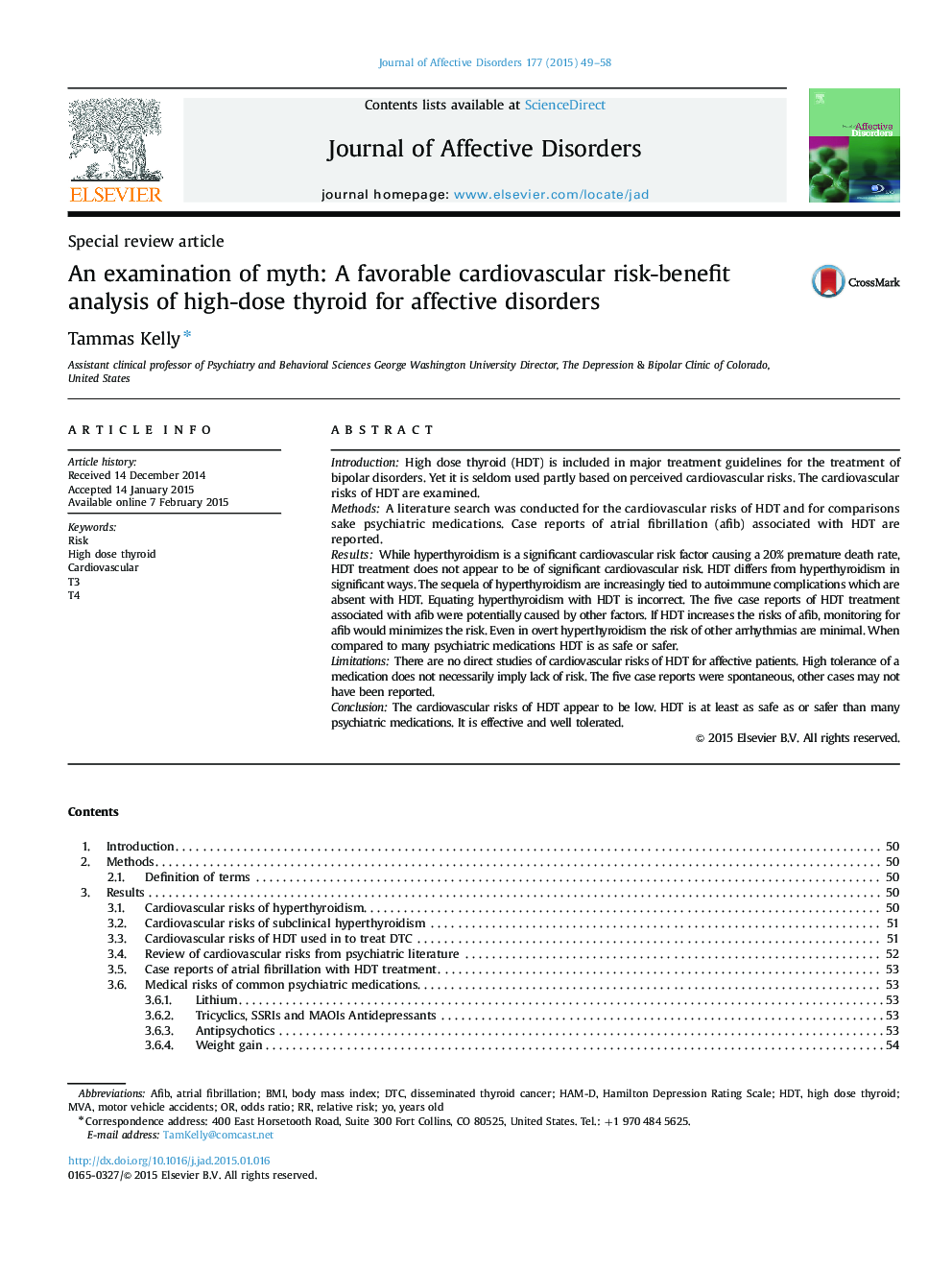| Article ID | Journal | Published Year | Pages | File Type |
|---|---|---|---|---|
| 4185905 | Journal of Affective Disorders | 2015 | 10 Pages |
IntroductionHigh dose thyroid (HDT) is included in major treatment guidelines for the treatment of bipolar disorders. Yet it is seldom used partly based on perceived cardiovascular risks. The cardiovascular risks of HDT are examined.MethodsA literature search was conducted for the cardiovascular risks of HDT and for comparisons sake psychiatric medications. Case reports of atrial fibrillation (afib) associated with HDT are reported.ResultsWhile hyperthyroidism is a significant cardiovascular risk factor causing a 20% premature death rate, HDT treatment does not appear to be of significant cardiovascular risk. HDT differs from hyperthyroidism in significant ways. The sequela of hyperthyroidism are increasingly tied to autoimmune complications which are absent with HDT. Equating hyperthyroidism with HDT is incorrect. The five case reports of HDT treatment associated with afib were potentially caused by other factors. If HDT increases the risks of afib, monitoring for afib would minimizes the risk. Even in overt hyperthyroidism the risk of other arrhythmias are minimal. When compared to many psychiatric medications HDT is as safe or safer.LimitationsThere are no direct studies of cardiovascular risks of HDT for affective patients. High tolerance of a medication does not necessarily imply lack of risk. The five case reports were spontaneous, other cases may not have been reported.ConclusionThe cardiovascular risks of HDT appear to be low. HDT is at least as safe as or safer than many psychiatric medications. It is effective and well tolerated.
